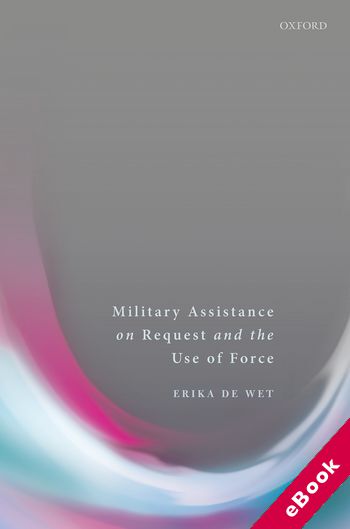
The device(s) you use to access the eBook content must be authorized with an Adobe ID before you download the product otherwise it will fail to register correctly.
For further information see https://www.wildy.com/ebook-formats
Once the order is confirmed an automated e-mail will be sent to you to allow you to download the eBook.
All eBooks are supplied firm sale and cannot be returned. If you believe there is a fault with your eBook then contact us on ebooks@wildy.com and we will help in resolving the issue. This does not affect your statutory rights.
The book examines if and to what extent the proliferation of direct military assistance on the request of a recognized government is changing the rules regulating the use of force. Since the end of the Cold War, several (sub)regional organizations in Africa have codified military assistance on request in their respective treaty frameworks. In addition, in countries such as Afghanistan, Iraq, Libya, Mali, Somalia, South Sudan, Syria, and Yemen, internationally recognized governments embroiled in protracted armed conflicts have requested direct military assistance from individual States or groups of States. These requests are often accepted by the other States, and at times the United Nations Security Council, even when the requesting governments have very limited effective control over their territories, lack democratic legitimacy, and are engaged in wide-spread and systematic violations of international human rights, and humanitarian law. This book departs from a definition of requested military assistance that refers to the exercise of forcible measures by third-State armed forces or those controlled by an international organisation in the territory of the requesting State. It then examines the authority to issue a request for (or consent to) direct military assistance, as well as the type of situations in which such assistance may be requested?notably whether it can be requested during a civil war (armed conflict). De Wet finishes by examining the important and controversial question of whether, and to what extent, the proliferation of forcible assistance on request is changing the legal framework applying to the use of force in international law.